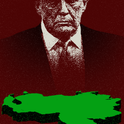The Norway option regularly resurfaces in the Brexit debate, when Leavers and Remainers become fed up with insulting and/or aggressing each other. Interestingly, there is nothing that the two sides agree on, except that the Norway option is some new kind of slavery, much worse than their own solution. The first tribe cannot countenance “Brexit in name only” and does not want free movement. The second will not surrender the British veto. Then there are technical questions about how you implement a Norway outcome.
But despite the political and practical objections a Norway soft Brexit could actually provide the way forward.
There are in fact two groups within the Norway faction. Some hope for the re-entry of the United Kingdom into the European Free Trade Association (EFTA), and consequently into the European Economic Area (EEA), effectively the single market. Others prefer the negotiation of a bespoke association agreement, which would be more or less based on the same principles, but with specific institutions, and possibly with separate access to the EFTA Court. In both cases, it could be necessary to negotiate in parallel a customs union agreement.
Of course, the UK’s re-entry into the EFTA and EEA would require the approval of the EFTA members, and of the EU. Most probably some institutional adjustments will have to be discussed, in the short- to medium-term, because the UK’s presence will modify the nature of EFTA. The UK’s weight will also need to be reflected in the make-up of the EFTA secretariat.
However, if politicians still have the strategic vision (a big if), all parties should show some flexibility. Though the re-entry of the UK into EFTA would change the organisation’s present cosiness, it would also very substantially increase its members’ influence. This consideration would also apply to the UK. Though some nostalgic minds seem to hanker after splendid isolation, belonging to a coalition of states with privileged trade access to the single market would be much more efficient. The EU itself has a strong incentive to create a functioning structure for all neighbouring states unwilling or unable to participate in its political objectives but desiring strong trade cooperation. The present “neighbourhood policy” for nearby countries demonstrates this while mammoth preferential trade agreements have been proliferating in all directions.
It would be most useful to establish an EU/UK customs union beside the EEA. This addition would be something new. As such, it will require some technical inventiveness. Additionally, the proponents of a custom union in the UK want a say over the negotiation of EU trade agreements with third parties. Though this is also new, there exist ways to accommodate this wish. And, again, it would be in the interests of all parties involved.
Although there will be technical difficulties (like in all broad negotiations), these would be quite limited compared to the organisation of a hard Brexit solution. This alternative would require the definition of a brand new regime for trade in goods and services. In the field of goods, the UK would not benefit any more from the conclusion of EU agreements with third countries. You would fall back on the framework of the WTO. Compared to that, the EEA option could quickly look like a walk in the park.
The EEA’s problems are more political than technical. In a very stimulating comment published in Prospect, Anand Menon argued “the awkward truth is that a Norway Brexit almost certainly wouldn’t work.” This seems like a very categorical conclusion, whereas the outcome depends fundamentally on what one wants. The EEA option could work, provided its partners are really committed to making it work.
The fundamental political problem of hard Brexit and no Brexit is they will each be appalling for one half of the British population. After either of those two outcomes the Brexit debate will go on, and on, and on. That could be a real curse. But “it looks as if possibly nearly two-thirds of voters, and almost certainly a majority of them, could probably live with Norway-plus.”
There are basically three possible outcomes to Brexit: hard Brexit, soft Brexit and no Brexit. Nearly three years after the referendum, the EU still does not know what the UK wants. Brexit has utterly divided the whole country, and this does not seem likely to abate. If anything, the Brexiteers and Remainers appear more radicalised.
There lies the rub. Soft Brexit is an unwanted child, because it does not satisfy at all this appetite for radicalisation. It thus requires courage from politicians, since they are denounced as traitors by both sides. Those who show this courage should be commended.
According to Churchill, “democracy is the worst form of government except for all those other forms.” It could be said that EEA is the worst form of Brexit except for all those other forms. So it’s time for both tribes to realise soft Brexit is the least unsatisfactory outcome for all, and they will not find anything better, given the present state of the country. This is called compromise, and democracies cannot live without it.
The Norway option is the worst Brexit outcome except for all the others
Democracies cannot exist without compromise, says a former ECJ judge
May 06, 2019

Photo: Lexie Harrison-Cripps/EMPICS Entertainment











